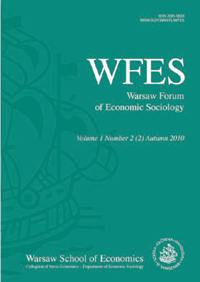Trade Unions and the Fiscal Crisis of the State
Trade Unions and the Fiscal Crisis of the State
Author(s): Dorothee BohleSubject(s): Social Sciences, National Economy
Published by: Szkoła Główna Handlowa w Warszawie
Keywords: fiscal crisis; neoliberalism; government; trade unions
Summary/Abstract: The paper is interested in how the repositioning of organized labour in Europe in the last 20 years has affected its capacity to answer the current fiscal crisis of the state. While there is reason to expect a growing discontent among unions' core constituencies with the unequal way that the costs of the crisis are being distributed, unions don't seem to be able to organize this discontent, and turn it into a source of countervailing power against 'markets' and the state. In order to understand this outcome, the paper makes three arguments. First, it shows that European integration since the 1980s has at its core been a neoliberal project which has aimed at restoring capitalist power and institutionalizing permanent austerity. It then argues that trade unions have become integrated into this project in a paradoxical way: while their institutional representation has been enhanced, they have simultaneously experienced a significant loss of autonomy and capacity to achieve substantial gains for their constituencies. As a result, trade unions approach the current fiscal crisis of the state from a peculiar state-dependent position, which limits their capacity to organize the growing discontent in a sustainable way.
Journal: Warsaw Forum of Economic Sociology
- Issue Year: 2/2011
- Issue No: 1 (3)
- Page Range: 89-105
- Page Count: 18
- Language: English

